About 20% of people have gastroesophageal reflux disease (GERD), a condition where stomach acid flows back up. It can cause a burning feeling in the chest. Your food choices are crucial in controlling this. The esophageal sphincter can weaken, letting food and acid back up into your throat.
Table of Contents
ToggleFatty, salty, or spicy foods can relax the esophageal sphincter and slow down digestion. This can lead to reflux. Foods like fried items, fast food, and fatty meats are common triggers. Chocolate, fizzy drinks, and tomato sauces are also culprits. You won’t need to cut all these out, but eating them in moderation can help. Eating them too close to bedtime is a big no-no. It’s important to know what foods cause your reflux. Making smart food choices can help ease symptoms of reflux esophagitis.
Learning what causes your reflux and avoiding these foods is key. Adding more alkaline, high-fiber, and watery foods to your diet can help. It’s a good way to ease your symptoms and take care of your digestive system.
Understanding Reflux Esophagitis
Reflux esophagitis happens when stomach contents, like acid, flow back into the food pipe. This becomes a long-term issue. It causes heartburn and pain in the upper belly. What you eat and how you live can affect how bad it gets.
What is Reflux Esophagitis?
This condition is known as acid reflux esophagitis. The lower esophageal sphincter weakens or doesn’t work properly. As a result, stomach acid can enter the food pipe. This leads to irritation and inflammation of the esophagus.
Symptoms of Reflux Esophagitis
Heartburn, bloating, and belching are common signs. You may also experience hiccups, wheezing, and a sore throat. Symptoms can be mild or severe based on how often they occur.
Causes of Reflux Esophagitis
Being obese or pregnant can increase your risk. Hiatal hernias and certain medications are also causes. Obesity and pregnancy raise pressure on the stomach. This makes acid flow back up. Medications and hiatal hernias can also weaken the muscle that keeps stomach acid down.
Role of Diet in Managing Reflux Esophagitis
Food is key in handling acid reflux and is often the first thing doctors focus on when treating reflux esophagitis. Some foods relax the esophageal sphincter and slow down digestion. This can make food come back up into the esophagus. By avoiding foods that trigger this and eating more alkaline, high-fiber, and watery foods, you can ease symptoms.
Lifestyle changes like quitting smoking and losing weight can also help. You might need over-the-counter or prescription medicine if your symptoms are serious. With the right plan, you can manage reflux esophagitis well.
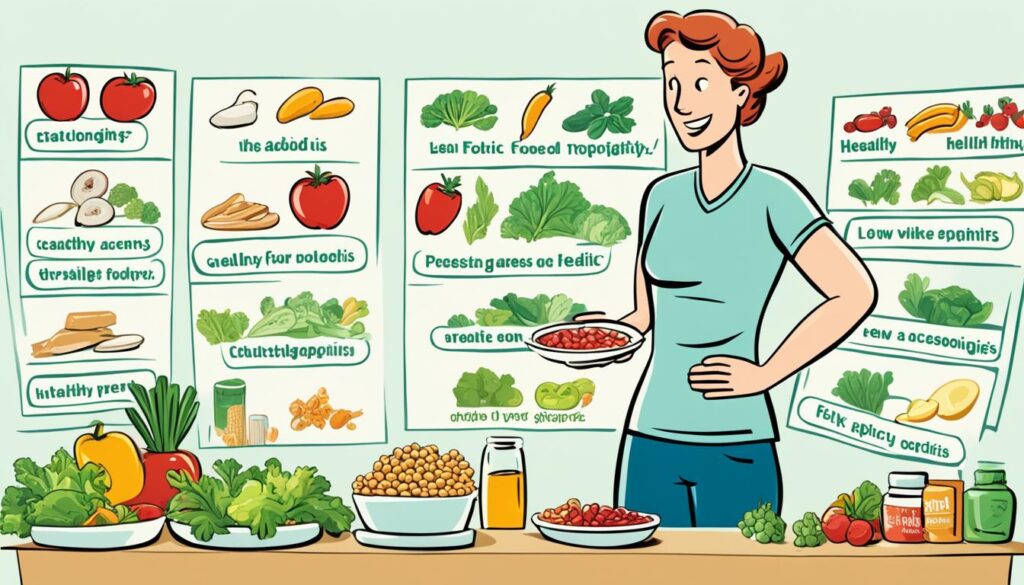
Foods to Avoid with Reflux Esophagitis
High-fat, salty, or spicy foods can make the muscle at the bottom of your esophagus relax. This makes digestion slow, causing reflux. Think twice about fried foods, fast food, and snacks like potato chips.
Hot spices, including chili powder and pepper, can also make reflux worse.
Fried and High-Fat Foods
We all love a good pizza but eating it too close to bedtime might not be wise. The fat in it can relax the esophageal sphincter. This can lead to reflux.
Limiting these foods, particularly at night, is a good idea.
Spicy Foods
Love a kick in your dish? Ingredients like chili powder or peppers can make heartburn worse. The spiciness and acidity can upset your esophagus.
It’s best to steer clear of these reflux esophagitis symptoms culprits.
Citrus Fruits
Yes, fruits like grapefruit and oranges, can be too acidic for some. They might irritate your esophagus, making reflux more likely.
Be cautious with these trigger foods for reflux esophagitis.
Tomato-Based Products
Spaghetti, pizza, and ketchup lovers beware. Tomato sauces can be too acidic, causing problems for your esophagus.
These are known foods to avoid with reflux esophagitis.
In Summary
Eliminating these foods might not be doable for everyone. But, keeping them off your plate near bedtime and eating them moderately is a smart move.
Acidic Foods and Beverages
Aside from our previous trigger foods, acidic foods and drinks can make reflux esophagitis worse. This includes fizzy drinks which make your stomach produce more acid. Coffee and drinks with caffeine also relax the valve that keeps stomach acid down. This can lead to more reflux.
Carbonated Drinks
Soda and sparkling water are tough for people with reflux esophagitis. They can make your stomach produce extra acid. This acid might then come back up your esophagus. For those fighting reflux, it’s smart to cut back on these drinks. This is especially important before bed.
Coffee and Caffeinated Beverages
Coffee, tea, and energy drinks are not friends to those with reflux. They contain caffeine, which can make the valve to your stomach relax. This valve is what keeps acid where it should be. While each person’s food triggers can vary, cutting down on acidic and fizzy drinks might help lessen your symptoms.
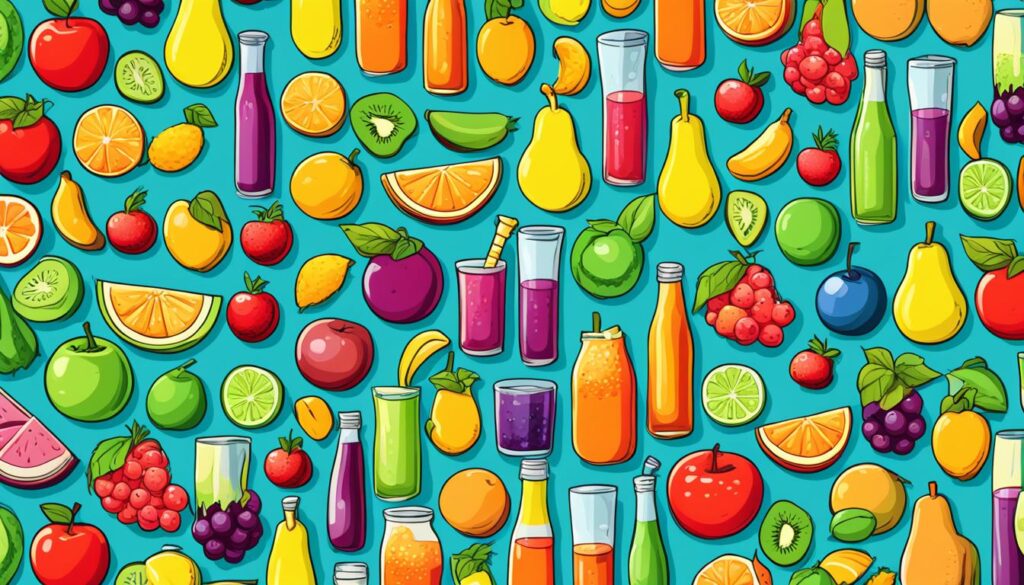
Alcohol and Reflux Esophagitis
Alcohol can be tough on folks with reflux esophagitis. It relaxes the esophageal sphincter, which lets stomach contents move up the esophagus. It also makes the stomach create more acid, making heartburn worse. People with this condition are often advised to limit how much alcohol they drink, especially before bedtime.
Research shows that more alcohol and drinking often are big factors in GERD. There’s a link between drinking three or less drinks a week and GERD. A study in 2006 showed that beer and wine can trigger reflux, more than water alone does.
A study from 1993 found something surprising. It suggested that spirits like gin, whiskey, and cognac might actually be better for acid reflux. They have less alcohol per drink than other types. For example, a serving of alcohol could be a 12-ounce beer, 5 ounces of wine, or 1.5 ounces of distilled liquor.
Studies also link alcohol with more serious conditions like Barrett’s esophagus and esophageal cancer. The risk of these illnesses is higher, especially among Japanese men who drink alcohol.
If you have reflux esophagitis, it’s wise to watch how much alcohol you consume. Cutting back, especially near bedtime, can help manage your symptoms and slow down the condition’s progress.
Foods To Avoid With Reflux Esophagitis
Some foods can make reflux esophagitis symptoms worse. Among the ones to avoid are dairy products high in fat. They make the esophageal sphincter relax and slow down how fast your stomach empties. This leads to more reflux. Also, sugary and processed foods like white bread, cereals, and baked goods are not good. They are full of refined carbs, but low in fiber, making reflux worse. What bothers you might not bother someone else, so keeping track of what you eat and how it affects you is important.
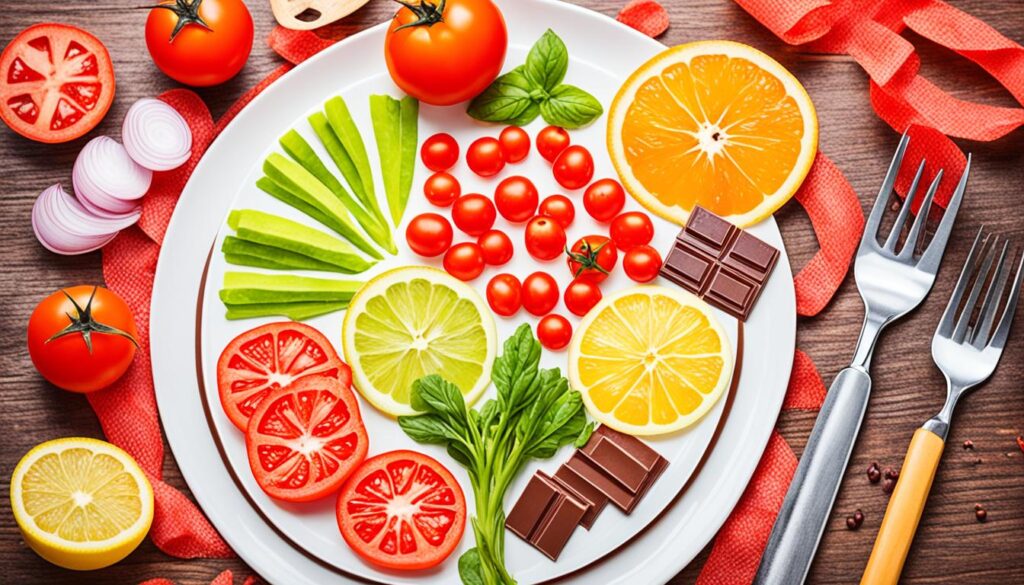
- High-fat dairy products like whole milk, cheese, and ice cream
- Sugary foods such as pastries, cookies, and candy
- Processed snacks like chips, crackers, and pretzels
- White bread, bagels, and other refined carbohydrates
By cutting down on these trigger foods, you can make your reflux esophagitis better. This also helps keep your esophagus from getting more irritated.
Dairy Products and Reflux Esophagitis
Dairy and reflux esophagitis have a complex connection. Some studies show that drinking milk, especially low-fat types, can help ease heartburn temporarily. On the flip side, other research links cow’s milk allergy to worse GERD symptoms in kids and maybe adults too. If you have reflux esophagitis, trying to cut or limit dairy might help. It could improve your symptoms.
Cow’s milk products are major culprits of acid reflux. This is true for both GERD and non-GERD sufferers. Surprisingly, a 2022 study with people who have metabolic syndrome showed that having 3.3 servings of either low-fat or full-fat dairy daily didn’t make their heartburn worse. This study helps us see that dairy effects can differ. Additionally, a 2024 study points out that non-lactose intolerant individuals with GERD might actually benefit from eating dairy.
Some people think they’re lactose intolerant but never get tested, a 2022 study warns. This mistake could hide other health issues and nutrient shortages. So, if you’re facing symptoms of reflux esophagitis, lowering your dairy intake and watching your body’s reaction could be helpful. This simple test might show if dairy is either making you feel better or worse.
Sugary and Processed Foods
Sugary and processed foods can make reflux esophagitis worse. This includes white bread, white rice, and sugary fruits. These foods quickly raise blood sugar levels and can lead to more reflux. Also, snacks and baked goods that lack fiber can slow digestion. This makes it easier for stomach contents to come back up the throat. To feel better, people with reflux should watch their intake of sugary and processed foods.
High Glycemic Index Foods
High glycemic index foods cause blood sugars to spike fast. This can worsen symptoms of reflux esophagitis. Foods like white bread, white rice, and certain sweet fruits do this. Choosing foods with a lower glycemic index, such as whole grains and certain vegetables, might help lessen reflux issues.
Processed Snacks and Baked Goods
Processed snacks and baked goods are not good choices for those with reflux esophagitis. They tend to be high in sugars and unhealthy fats but low in fiber. These foods slow down digestion. As a result, stomach contents might flow back up the esophagus more easily. To reduce reflux symptoms, it’s wise to cut back on these processed snacks and baked goods.
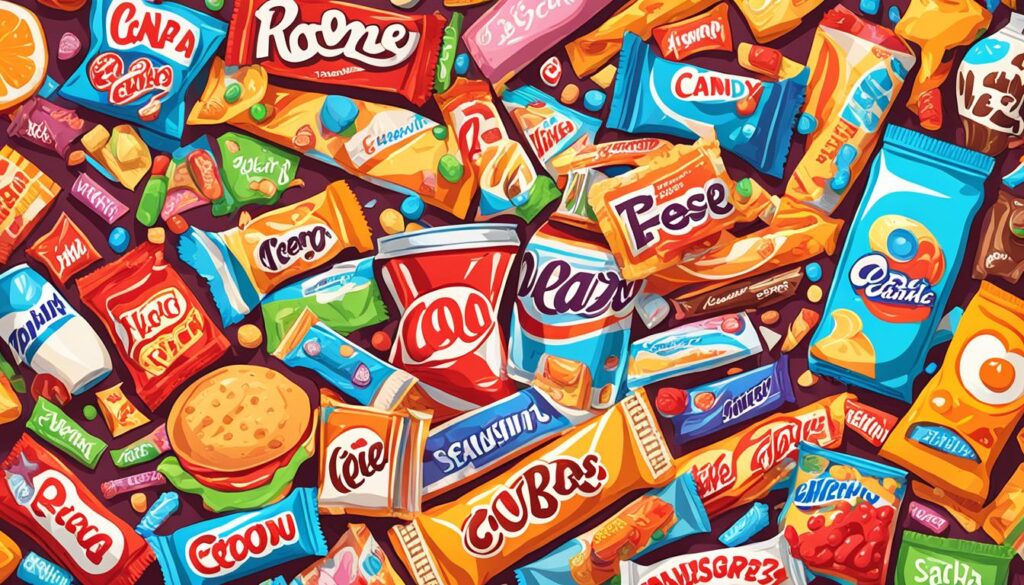
Trigger Foods and Individual Sensitivity
Some trigger foods for reflux esophagitis are widely known. But, how they affect you personally might be different. For instance, a small amount of these foods might not cause issues for some. Yet, others could feel much better by cutting them out completely. Watch how your body responds to these foods and adjust your diet as needed.
Creating a food diary is a great idea. Write down what you eat and how you feel after. This will help you see which foods might be making your reflux esophagitis worse. Then you can focus on avoiding those triggering foods.
Each person’s body reacts uniquely. What triggers symptoms in one person might not bother someone else. Pay attention to how your body responds. And, feel free to try different dietary changes to see what helps you best.
Foods to Include for Relief
While certain foods can cause reflux esophagitis symptoms, others can help. Alkaline foods, like bananas, melons, and nuts, counter stomach acidity. High-fiber foods, such as whole grains, help make you feel full but not overloaded.
Watery foods, including celery and watermelon, weaken stomach acid. Try to eat more of these types to help with your symptoms.
Alkaline Foods
Foods like bananas, melons, and cauliflower reduce strong stomach acid. They can ease heartburn and other issues by neutralizing acidity.
High-Fiber Foods
Eating more high-fiber foods can manage reflux esophagitis well. Whole grains, root vegetables, and greens keep you full without overloading your stomach. This might help prevent reflux.
Watery Foods
Watery foods dilute and weaken stomach acid, easing reflux esophagitis discomfort. Options like celery and broth-based soups also soothe the esophageal lining.
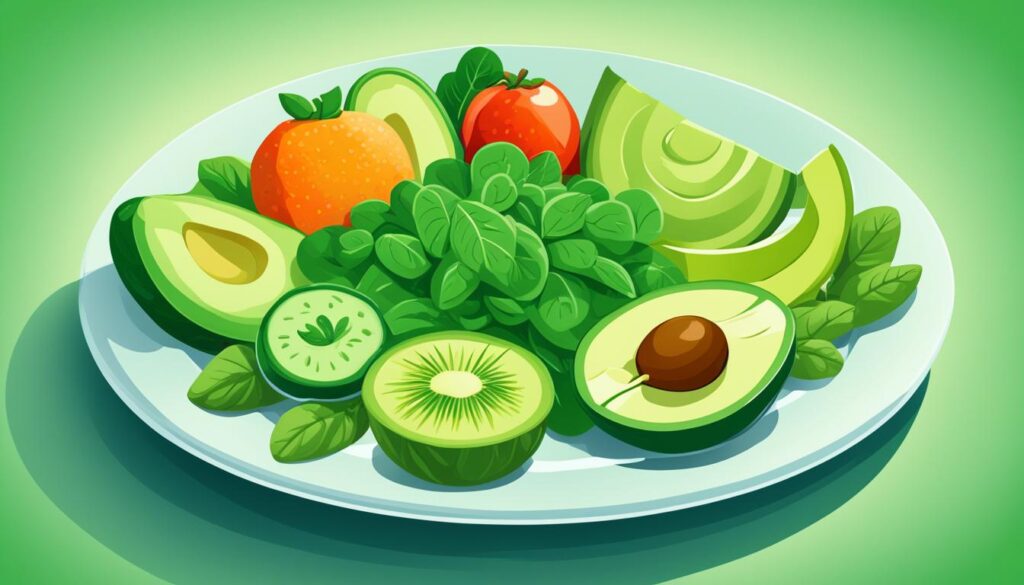
Home Remedies for Reflux Esophagitis
There are home remedies that might help with reflux esophagitis. Ginger is known to reduce inflammation in the gut. Drinking ginger for reflux esophagitis tea might calm your digestive system down. Though it sounds strange, apple cider vinegar for reflux esophagitis can be helpful. Mix it in water and drink it with meals to make it less acidic. Lemon water for reflux esophagitis can also balance stomach acid. People often feel better by using these strategies, even if the science isn’t clear.
Ginger
Ginger helps by reducing inflammation. It’s good for the digestive system. You can have ginger tea or add fresh ginger to your meals.
Apple Cider Vinegar
Even though it’s acidic, apple cider vinegar can help balance the body’s pH. Dilute it in water and have it with your meals. This might lessen the effects of stomach acid for people with reflux esophagitis.
Lemon Water
Lemon water contains acids that can counter strong stomach acid. It’s a simple and natural way to reduce reflux esophagitis symptoms. Adding lemon water to your daily routine could be refreshing and beneficial.
Lifestyle Modifications
Changing the way you live can also ease reflux esophagitis symptoms. It’s important to eat healthier and stay at a good weight. These steps are very helpful.
Eating Habits
Eating smaller meals more often is better than big, heavy ones. This keeps your stomach from getting too full. Try not to eat right before bed. When you sleep with a full stomach, acids can move up your throat. Changing what you eat can help with reflux esophagitis symptoms.
Weight Management
Being a healthy weight is key. If you’re overweight, losing some pounds can help your stomach and esophagus. This change can ease reflux. Also, being too heavy can affect the way your esophageal valve works. Taking steps to stay at a healthy weight is important in managing reflux esophagitis.

When to Seek Medical Attention
If changing your lifestyle and diet doesn’t help your reflux esophagitis, you might need to see a doctor. Symptoms like ongoing heartburn, trouble swallowing, or anything that worries you should not be ignored. A specialist can check the acid in your stomach and see if your esophagus is hurt. GERD can usually be managed with changes and drug treatments. But, it’s crucial to get a proper check-up to find the real cause and the right treatment plan.
Knowing when to see a doctor for reflux esophagitis is very important. Avoiding treatment could make things worse. If your reflux doesn’t get better even after you’ve changed your diet and habits, seeing a gastroenterologist is your next step for a detailed evaluation and treatment advice.
Conclusion
Reflux esophagitis is a chronic issue that needs ongoing care. Dietary changes and lifestyle adjustments can help a lot. It’s vital to spot trigger foods. These include high-fat, spicy, acid foods, and processed snacks. Cutting them out can ease your symptoms.
Adding more alkaline, fiber-rich, and watery foods to your meals may also help. Healthy eating is crucial. So is keeping a good weight. These steps can make a big difference.
Turning to home remedies like ginger, apple cider vinegar, and lemon water might ease your discomfort. But, if symptoms are bad or keep coming back, it’s time to see a doctor. They can provide the right care.
Understanding how your diet affects reflux esophagitis is key. Being proactive about managing it can really change how you feel. This way, you can have better control over your health and enjoy life more.
Finding the right foods and avoiding some is essential in dealing with reflux esophagitis. Making diet and lifestyle changes can lower your symptoms. This improves your well-being and comfort.
FAQ
What is reflux esophagitis?
Reflux esophagitis is a condition where stomach contents, including acid, go back into the esophagus. This often happens over a long time and causes heartburn and upper stomach pain.
What are the symptoms of reflux esophagitis?
Symptoms include heartburn, feeling bloated, and belching. Hiccups, wheezing, and a sore throat can also occur. So can hoarseness and having food come back up.
What causes reflux esophagitis?
When the lower esophageal sphincter is weak or relaxes too much, acid reflux happens. This can be due to obesity, pregnancy, certain drugs, or a hiatal hernia.
How does diet play a role in managing reflux esophagitis?
Diet helps a lot in controlling acid reflux. It’s the main treatment for this condition. Some foods can make the esophageal sphincter relax and slow digestion, causing acid to come back up.
What types of foods should be avoided with reflux esophagitis?
Foods high in fat, salt, or spice can lead to acid reflux. These include fried and fast foods, pizza, and chips. Spicy foods with peppers and acidic fruits or tomatoes should also be avoided.
How do carbonated drinks and caffeinated beverages affect reflux esophagitis?
Carbonated drinks and caffeine can cause the stomach to make more acid. This leads to more reflux. Hence, it’s best to limit intake of these beverages.
Is alcohol problematic for individuals with reflux esophagitis?
Alcohol relaxes the esophageal sphincter. This allows stomach acid to go back up the esophagus. It also makes the stomach produce more acid.
What other foods can worsen reflux esophagitis symptoms?
Dairy, especially high-fat products, can make the esophageal sphincter relax. This can cause more reflux. Sugary and processed foods with low fiber can also worsen symptoms.
Do all individuals with reflux esophagitis have the same trigger foods?
No, not everyone reacts the same. Some might handle small amounts of trigger foods better. It’s key to know what foods bother you and avoid them if needed.
What types of foods can provide relief for reflux esophagitis?
Alkaline foods like bananas and melons can help balance stomach acid. High-fiber foods and watery vegetables can decrease reflux symptoms. Eating these foods may make you feel better.
Are there any home remedies that may help with reflux esophagitis?
Ginger, apple cider vinegar, and lemon water are known home treatments. Ginger is anti-inflammatory and can calm your belly. Apple cider vinegar and lemon water can balance stomach acid.
What other lifestyle modifications can help manage reflux esophagitis?
Changes like eating smaller meals, not eating close to bedtime, and keeping a healthy weight can reduce symptoms. These lifestyle choices are important for managing acid reflux.
When should someone with reflux esophagitis seek medical attention?
If heartburn or swallowing problems happen a lot or worry you, see a doctor. They can do tests to check your stomach acid levels and see if your esophagus is hurt from acid reflux.
About The Author

Medically reviewed by Dr. Nivedita Pandey, MD, DM (Gastroenterology)
Senior Gastroenterologist & Hepatologist
Dr. Nivedita Pandey is a U.S.-trained gastroenterologist and hepatologist with extensive experience in diagnosing and treating liver diseases and gastrointestinal disorders. She specializes in liver enzyme abnormalities, fatty liver disease, hepatitis, cirrhosis, and digestive health.
All content is reviewed for medical accuracy and aligned with current clinical guidelines.
About Author | Instagram | Linkedin




